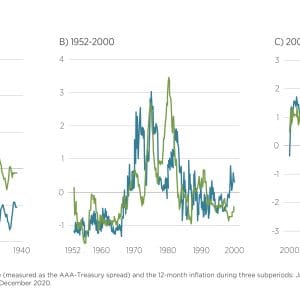BFI Working Paper·May 22, 2024
- About
- Network
- Research Initiatives
- Big Data Initiative
- Chicago Experiments Initiative
- Health Economics Initiative
- Industrial Organization Initiative
- International Economics and Economic Geography Initiative
- Macroeconomic Research Initiative
- Political Economics Initiative
- Price Theory Initiative
- Public Economics Initiative
- Ronzetti Initiative for the Study of Labor Markets
- Socioeconomic Inequalities Initiative
- Research Initiatives
- Scholars
- Research
- Optimal Income Tax Deductions for Mixed Business and Personal ExpendituresJacob Goldin, Sebastian Koehne, and Nicholas LawsonLearning Fundamentals from TextAlex G. Kim, Maximilian Muhn, Valeri Nikolaev, and Yijing ZhangThe Anatomy of the Great Terror: A Quantitative Analysis of the 1937-38 Purges in the Red ArmyAlexei Zakharov and Konstantin Sonin
- Events
Upcoming Events
- Insights
BFI Videos
BFI Youtube Channel
- News












